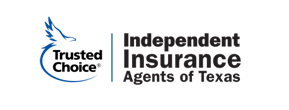Auto Insurance
Auto insurance, also known as car insurance or vehicle insurance, is a type of insurance coverage that provides financial protection to individuals or businesses against potential losses arising from accidents, collisions, theft, and other events involving their automobiles. Auto insurance policies vary in coverage types and levels, but they generally offer a combination of protection for the vehicle itself, liability for bodily injury or property damage to others, and other optional coverage features.
Key components of auto insurance include:
-
Liability Coverage: This is a fundamental aspect of auto insurance and covers the policyholder's legal and financial obligations if they are responsible for causing bodily injury or property damage to other parties in a covered accident. Liability coverage is often split into two components: bodily injury liability (covers medical expenses, lost wages, and legal expenses for injured parties) and property damage liability (covers repair or replacement costs for damaged property).
-
Collision Coverage: This part of the policy helps cover the costs to repair or replace the insured vehicle if it's damaged in a collision with another vehicle or an object, regardless of who is at fault.
-
Comprehensive Coverage: Also known as "other than collision" coverage, this option covers damage to the insured vehicle caused by non-collision events, such as theft, vandalism, natural disasters, falling objects, and more.
-
Personal Injury Protection (PIP) or Medical Payments Coverage: PIP coverage, required in some states, provides medical expenses, rehabilitation costs, and sometimes lost wages for the policyholder and passengers injured in an accident, regardless of fault.
-
Uninsured/Underinsured Motorist Coverage: This coverage helps protect the policyholder in the event of an accident with a driver who either has no insurance or insufficient coverage to fully cover the damages.
-
Rental Reimbursement Coverage: This optional coverage helps pay for the cost of renting a replacement vehicle while the insured vehicle is being repaired due to a covered claim.
-
Towing and Roadside Assistance: Another optional feature, this coverage helps pay for emergency towing and other roadside assistance services, such as battery jump-starts, tire changes, and fuel delivery.
-
Gap Insurance: This optional coverage is relevant for those who are leasing or financing their vehicles. It covers the "gap" between the vehicle's actual value and the amount owed on the lease or loan in the event of a total loss.
The cost of auto insurance premiums depends on various factors, including the type of coverage, the insured vehicle's make and model, the policyholder's driving history, location, age, and more. Auto insurance is typically required by law in most jurisdictions, although specific coverage requirements can vary by state or country.
Auto insurance helps drivers protect their financial interests by providing compensation for damages and injuries resulting from accidents and other covered events. It's important for policyholders to review their coverage options carefully and choose a policy that aligns with their needs and preferences.
We also consult on the following auto insurance policies:
- Motorcycles, RVs, trailers, etc.
- Vehicle theft
- Collision insurance coverage
- Towing and Rental Cars






